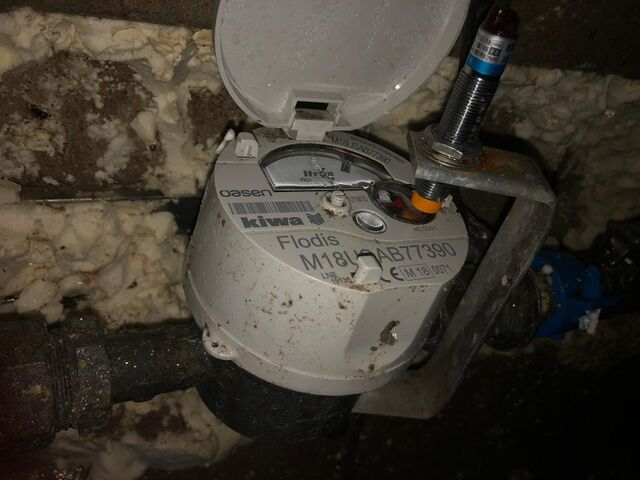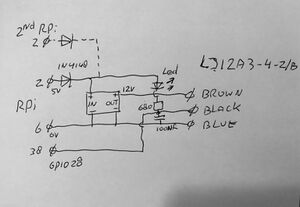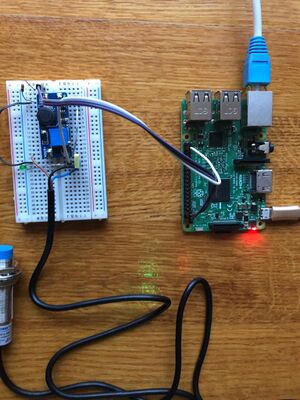Difference between revisions of "RPiWaterMeter"
| Line 6: | Line 6: | ||
For magnetic sensor I use the LJ12A3-4-Z/B from the well known company in China, with a piece of aluminium it's easy to mount on the meter: | For magnetic sensor I use the LJ12A3-4-Z/B from the well known company in China, with a piece of aluminium it's easy to mount on the meter: | ||
<div class="res-img"> | <div class="res-img"> | ||
| − | [[File:RPi_watermeter_sensor.jpeg| | + | [[File:RPi_watermeter_sensor.jpeg|640px]] |
</div> | </div> | ||
Revision as of 17:52, 23 December 2020
This is the way I measure water-usage with my Raspberry Pi In my case I use Domoticz, but it also works with Home-Assist and other products.
It works with a magnetic sensor, which can be used because of the half-metal rotor of watermeters in my country (Netherlands) For magnetic sensor I use the LJ12A3-4-Z/B from the well known company in China, with a piece of aluminium it's easy to mount on the meter:
Shematics:
Because the sensor needs 9-36 Volt, while a Raspberry Pi only can deliver 5 Volt, I use an adjustable chopper (also from China), adjusted as 12 Volt. I use a Raspberry Pi Cluster, so I can do a failover, pin 2,6 and 38 (if you use GPIO20) are also wired to a second Pi, for the Power a diode is needed, for each Pi, while it's a bad idea to connect the power to multiple Pi's.
First tested it with an experiment board:


